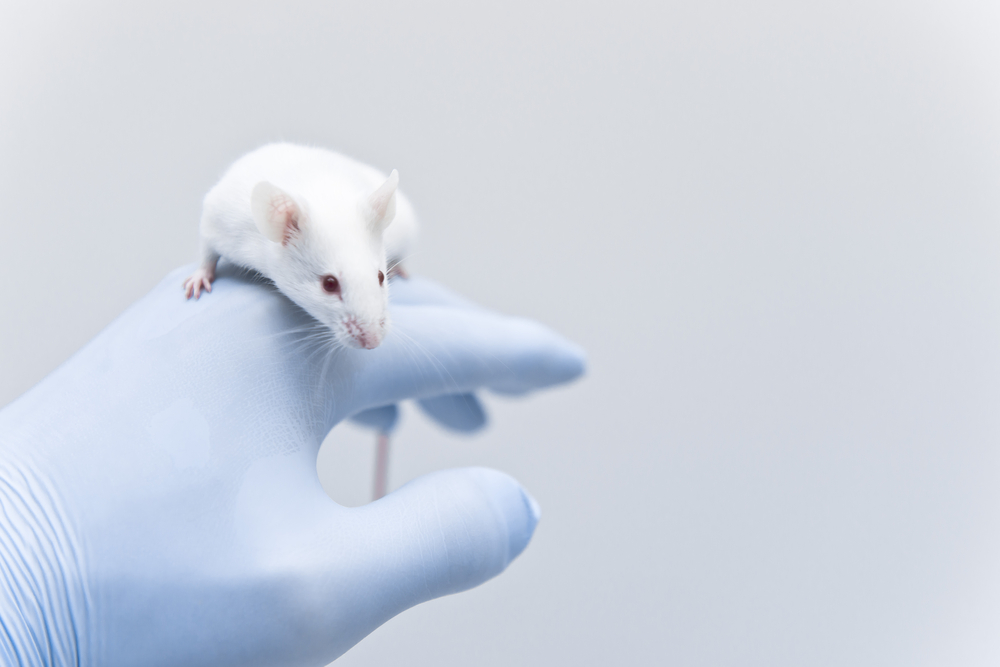BIIB100 Improves Motor Function, Slows DMD Progression in Animal Models, Study Finds
Written by |

An experimental therapy called BIIB100 improved motor function and slowed the progression of Duchenne muscular dystrophy (DMD) in animal models of the disease, a study shows.
These findings suggest BIIB100’s potential for people with DMD, which the researchers hope will be evaluated in a future Phase 1 trial.
The study, “The SINE Compound KPT-350 Blocks Dystrophic Pathologies in DMD Zebrafish and Mice,” was published in the journal Molecular Therapy.
DMD is characterized by muscle degeneration and chronic inflammatory responses in damaged muscles. This inflammatory response is a result of the infiltration of immune cells, such as macrophages, that produce pro-inflammatory molecules and promote tissue scarring (fibrosis).
Biogen‘s BIIB100, originally named KPT-350, is an oral selective inhibitor of nuclear export (SINE) compound. It blocks the activity of a protein called XPO1, which mediates the exit of more than 200 proteins from the cell nucleus to the cytosol (the remaining components of a cell). Some of these proteins are transcription factors, or small proteins involved in the regulation — turning “on” and “off” — of gene activity.
Preclinical data indicated that BIIB100 reduces inflammation and neurotoxicity through the regulation of these key proteins, suggesting that it may have therapeutic benefits in people with DMD.
To further assess its potential, researchers at the University of Alabama at Birmingham (UAB) evaluated the effects of BIIB100 in zebrafish and mouse models of DMD.
Results in zebrafish showed that BIIB100 treatment increased muscle fiber integrity and organization, while also extending lifespan compared with untreated animals.
In mice with DMD, BIIB100 significantly reduced muscle degeneration and atrophy (shrinkage), and improved motor function to levels seen in healthy mice, as assessed by overall locomotor activity and movement velocity after eight weeks of treatment.
Further analyses in mice revealed that BIIB100 normalized the levels of several pro-inflammatory molecules (or cytokines) associated with muscle damage — such as TNF-alpha and interferon gamma — and increased the amounts of anti-inflammatory molecules interleukin (IL)-10 and IL-15.
This was accompanied by increased numbers of both pro- and anti-inflammatory subtypes of macrophages. However, pro-inflammatory macrophages — associated with the acute phase of muscle damage — showed higher levels of PD-L1, a cell membrane protein that suppresses immune responses and inflammation.
“Collectively, these data show that despite an overall increase in the proportion of macrophages, [BIIB100] promotes a functional reprogramming of muscle inflammation,” the researchers wrote.
These findings, they added, suggest that BIIB100 increases the ability of muscle macrophages to induce regeneration and suppresses disease progression in DMD, validating the therapeutic potential of SINE compounds. Of note, these compounds have been successful in the treatment of children with leukemia and other cancer types.
“This type of translational science is tremendously valuable in helping us get closer to developing these drugs to make it to the patients with [DMD] as fast as possible,” Matthew Alexander, PhD, the study’s senior author and professor of pediatric neurology and genetics at UAB, said in a news release.
“This is also an exciting time for the field as exon-skipping and gene therapy drugs for neuromuscular disorders are being evaluated in clinical trials, and some are even being given to patients in our community,” he added.
The researchers noted, however, that future studies are needed to evaluate long-term and systemic effects of these compounds, as well as the link among inflammation, macrophages, and muscle regeneration in DMD.
Alexander hopes that BIIB100 will be evaluated in a Phase 1 safety trial in boys with DMD in the future. He and his team are looking at muscle molecular pathways altered by BIIB100. The scientists also plan to look at the effects of BIIB100 on the hearts and lungs — two organs also affected by the disease — in mice with DMD.
Besides DMD, BIIB100 is also being explored as a potential treatment for amyotrophic lateral sclerosis. A Phase 1 trial (NCT03945279) is recruiting adults with this disorder to test the therapy’s safety, tolerability, and pharmacological profile. More information on locations and contacts is available here.
Of note, Biogen acquired BIIB100’s license from Karyopharm Therapeutics in 2018.





